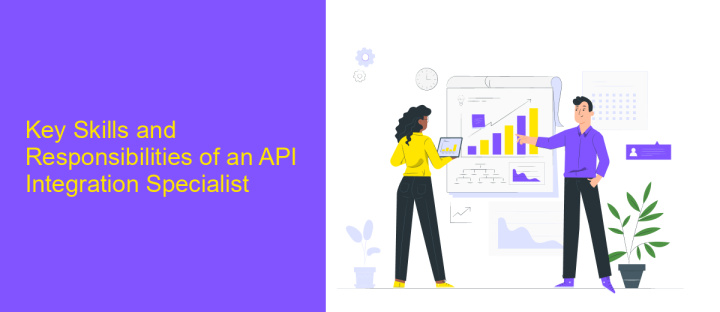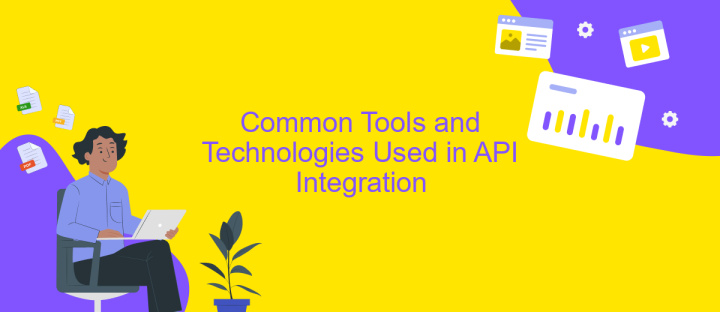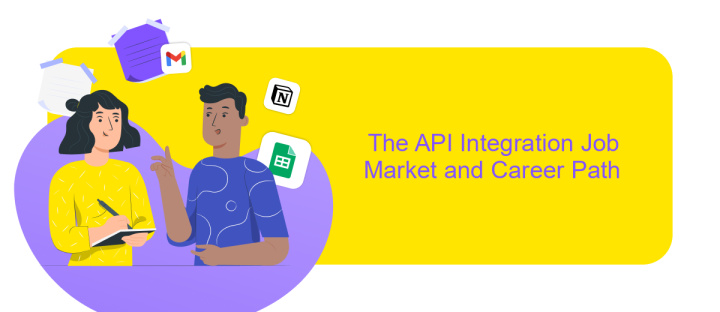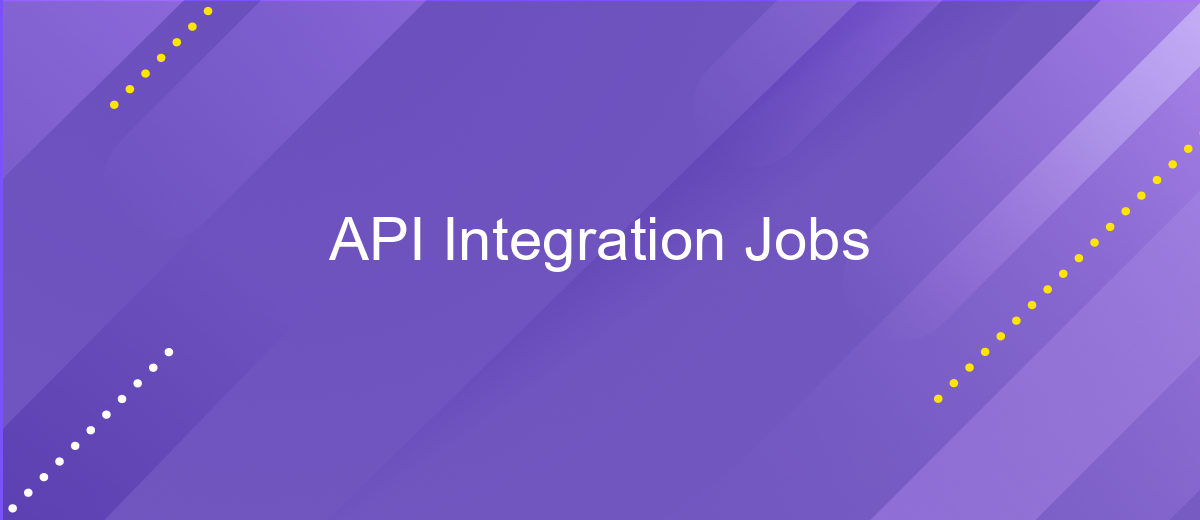API Integration Jobs
In today's rapidly evolving digital landscape, API integration jobs have become crucial for businesses seeking seamless connectivity and enhanced functionality. These roles involve bridging disparate systems, enabling data flow, and optimizing processes across platforms. As companies increasingly rely on APIs to drive innovation and efficiency, skilled professionals in this field are in high demand, making API integration a vital component of modern IT strategies.
Understanding API Integration Jobs
API Integration Jobs are crucial in today's digital landscape, enabling seamless communication between different software systems. These jobs facilitate the exchange of data and functionalities, ensuring that applications can work together efficiently. By integrating APIs, businesses can enhance their operational capabilities, streamline processes, and improve user experiences. Understanding these jobs involves recognizing the components and processes that enable successful API interactions.
- API Endpoints: Specific paths where APIs can access resources or perform actions.
- Authentication: Security measures ensuring only authorized users can access the API.
- Data Transformation: Modifying data formats to ensure compatibility between systems.
- Error Handling: Processes for managing and resolving errors during API interactions.
- Rate Limiting: Controls to prevent excessive API requests that could overwhelm the system.
Effective API integration requires a thorough understanding of these elements, as well as the ability to monitor and maintain API performance. By mastering API Integration Jobs, businesses can unlock new opportunities for innovation and efficiency, ensuring that their digital ecosystems are robust and responsive to the ever-evolving technological landscape.
Key Skills and Responsibilities of an API Integration Specialist

An API Integration Specialist is tasked with the seamless connection of various software applications through APIs, ensuring efficient data exchange and system interoperability. Key skills include a strong understanding of RESTful and SOAP APIs, proficiency in programming languages such as Python, Java, or JavaScript, and experience with API testing tools like Postman. Additionally, a solid grasp of data formats like JSON and XML is essential. Problem-solving skills and attention to detail are critical, as specialists must troubleshoot and resolve integration issues promptly. Familiarity with cloud services and platforms, as well as security protocols, is also vital to protect data integrity and privacy.
Responsibilities of an API Integration Specialist include analyzing business requirements and designing integration solutions that align with organizational goals. They must document integration processes and maintain clear communication with stakeholders. Specialists often use tools like ApiX-Drive to automate and streamline integration processes, reducing manual effort and enhancing efficiency. Continuous monitoring and optimization of API performance are crucial to ensure reliability and scalability. Furthermore, staying updated with the latest API trends and technologies enables specialists to recommend and implement innovative solutions that drive business growth.
Common Tools and Technologies Used in API Integration

API integration is a critical component in modern software development, enabling different systems to communicate and share data seamlessly. A variety of tools and technologies are commonly used to facilitate this process, ensuring efficient and secure connections between applications.
- RESTful APIs: This architectural style is widely adopted due to its simplicity and scalability, using standard HTTP methods and status codes.
- SOAP: A protocol for web services that offers robust security features and is suitable for enterprise-level applications.
- GraphQL: A query language for APIs that allows clients to request only the data they need, improving efficiency.
- Postman: A popular tool for testing and documenting APIs, providing a user-friendly interface for developers.
- Swagger: An open-source framework that aids in designing, building, and documenting RESTful APIs.
These tools and technologies are essential for developers to create reliable API integrations that enhance application functionality. By leveraging these resources, developers can streamline the integration process, reduce errors, and ensure that applications can communicate effectively across different platforms and environments.
The API Integration Job Market and Career Path

The API integration job market is experiencing significant growth as businesses increasingly rely on interconnected systems to streamline operations. This demand is driven by the need for seamless data exchange between various software applications, which enhances efficiency and decision-making processes. As companies continue to adopt digital transformation strategies, the role of API integration specialists becomes more crucial, offering exciting career opportunities for tech enthusiasts.
Professionals entering this field can expect to work with a variety of technologies and platforms, gaining valuable experience in both software development and business operations. The typical career path for an API integration specialist involves starting in junior roles and progressing to senior positions, with the potential to specialize in areas such as cloud integration or IoT connectivity. The diverse nature of API projects ensures that no two days are the same, keeping the work both challenging and rewarding.
- Junior API Integration Developer
- API Integration Specialist
- Senior API Integration Engineer
- API Solutions Architect
As the demand for API integration expertise grows, professionals in this field can expect competitive salaries and opportunities for advancement. Continuous learning and staying updated with the latest technologies are key to thriving in this dynamic job market. With the right skills and experience, API integration specialists can carve out successful and fulfilling careers.


Future Trends in API Integration
The future of API integration is poised to be shaped by several key trends. As businesses increasingly rely on digital ecosystems, seamless API integration will become crucial for operational efficiency. One emerging trend is the growing adoption of AI and machine learning to automate and optimize API processes. This will minimize human intervention, reduce errors, and enhance decision-making capabilities. Additionally, with the rise of IoT devices, APIs will need to handle more complex data exchanges, necessitating robust and scalable solutions.
Another significant trend is the emphasis on low-code and no-code platforms that simplify API integration. Services like ApiX-Drive are at the forefront, enabling businesses to connect applications without extensive technical knowledge. This democratization of API integration empowers non-developers to create and manage integrations, fostering innovation and agility. Furthermore, enhanced security measures will be vital as APIs become more ubiquitous, ensuring that sensitive data remains protected. As these trends unfold, businesses must stay agile and adaptable to leverage the full potential of API integrations.
FAQ
What is API integration and why is it important for businesses?
How can businesses automate their workflows using API integrations?
What are some common challenges faced during API integration?
How can non-technical users set up API integrations?
What should businesses consider when choosing an API integration tool?
Time is the most valuable resource for business today. Almost half of it is wasted on routine tasks. Your employees are constantly forced to perform monotonous tasks that are difficult to classify as important and specialized. You can leave everything as it is by hiring additional employees, or you can automate most of the business processes using the ApiX-Drive online connector to get rid of unnecessary time and money expenses once and for all. The choice is yours!

